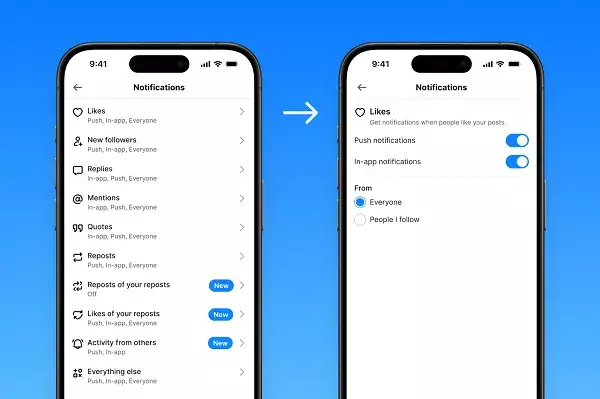Bluesky entered the social media arena with high hopes, positioning itself as the decentralized alternative to Twitter’s now-defunct identity. The platform aimed to empower users by allowing greater control over their feeds and data — a noble goal that resonates with a segment of privacy-conscious users. Yet, despite these compelling ideals, Bluesky’s current trajectory suggests that its vision isn’t hitting the mark on mainstream appeal. The latest feature updates, focusing on notification management, reveal a platform caught between imitation and innovation. While these tweaks may enhance user experience marginally, they don’t genuinely differentiate Bluesky from established giants like X or even Meta’s Threads.
Rhetoric vs. Reality: The Limitations of User-Controlled Engagement
The recent addition of customizable activity notifications on Bluesky attempts to mimic the familiar experience of Twitter’s notification system. Users can now choose which accounts they wish to follow actively and get alerts from, adding a layer of personalization. At face value, such features sound promising—more control, less noise. Yet, the broader issue persists: does anyone truly want the extra effort?
In an era where algorithms preempt our preferences and serve us tailored content, manual adjustment feels out of step with user expectations. Many users have become accustomed to passive browsing—where their online experience is curated in the background with minimal intervention. The idea that users will spend time fine-tuning notification preferences runs counter to the prevailing trend of convenience becoming king. Ironically, Bluesky’s push toward decentralization, which theoretically offers users more autonomy, seems disconnected from user behavior.
Decentralization’s Dilemma: Popularity or Practicality?
A core selling point for Bluesky has been its decentralized structure—an ethos appealing to privacy advocates and tech enthusiasts craving alternative social ecosystems. However, that idealistic vision clashes with real-world usage patterns. Platforms like Mastodon—lauded for their openness—struggle with user retention because the onboarding process is cumbersome; selecting servers, understanding federations—these are barriers for less tech-savvy users.
Meanwhile, Twitter’s successor, Threads, gained traction almost instantaneously primarily because of its seamless integration with Instagram. Setting up an account was just a tap, appealing to the average user who values convenience over control. It’s a fundamental lesson: users prefer ecosystems that are easy to join and familiar. Decentralized platforms, no matter how technologically superior or privacy-focused, face uphill battles convincing users to endure extra steps, especially when there is little immediate benefit.
The Illusion of Control and the Power of Convenience
Bluesky’s emphasis on giving users more tools for managing their experience is admirable, but it raises the question: do users truly want more control or simply claim that they do? The reality is that convenience often trumps control because it reduces effort. In the digital age, users gravitate toward services that require minimal input but deliver maximum payoff.
This explains why Facebook, despite numerous privacy scandals, retains its massive user base. People may complain about data practices, but they aren’t willing to sacrifice the ease of clicking a link or logging in with a single tap. The same logic applies to Bluesky—without significant innovations that make the platform more engaging or easier to use, it risks remaining a niche alternative rather than a mainstream contender.
Looking Beyond the Surface: Is Bluesky’s Future Bright or Bleak?
Bluesky’s current developments suggest a strategy caught between ideals and practicality. While the platform initially aimed to disrupt traditional social media paradigms, it now appears to be playing catch-up with feature parity instead of leading innovation. Without a compelling differentiator—be it unique content, advanced algorithms that genuinely give control, or user-friendly onboarding—Bluesky faces an uphill climb.
The social media landscape has proven time and again that resonance with the broader public hinges on simplicity and community. Decentralization and user empowerment are admirable goals but only if they align with user preferences for effortless engagement. Until Bluesky reckons with this tension, its potential remains limited—an alternative for the few, but not yet a true challenger to the giants dominating our digital lives.

